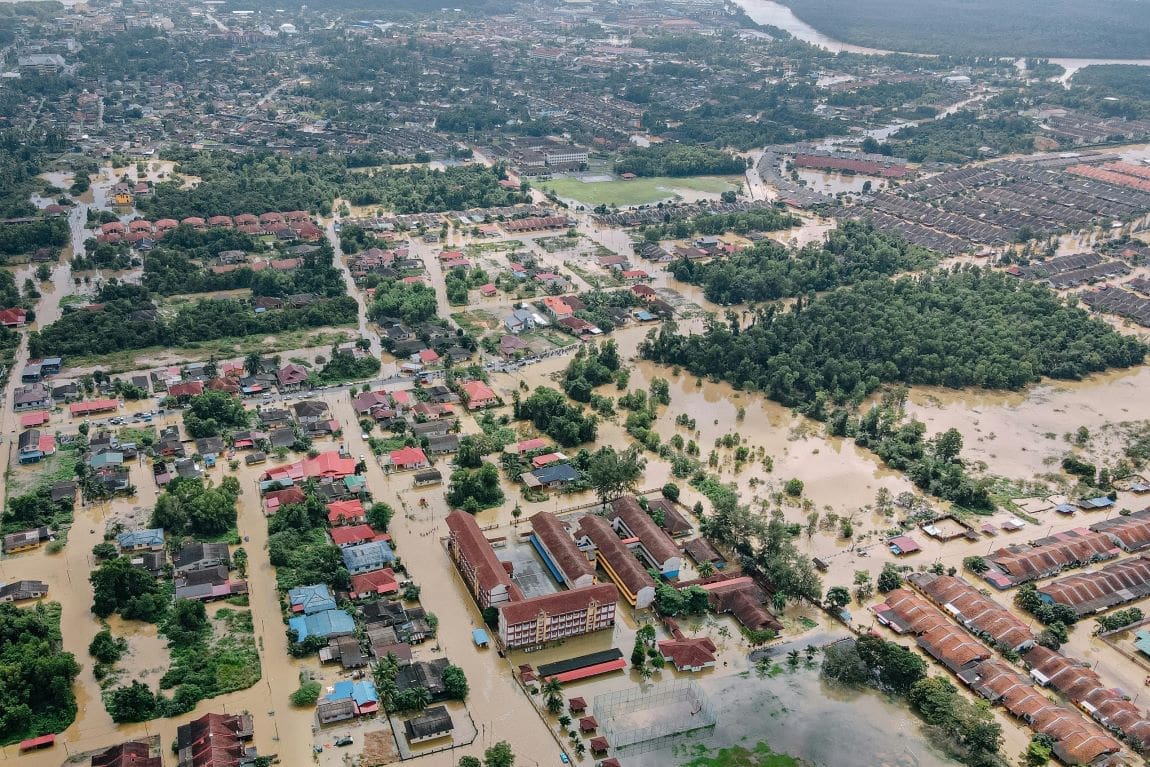Researchers’ new analytical model can assess neighborhood-level hazards globally
By University of California – Irvine
Cities around the globe are experiencing increased flooding due to the compounding effects of stronger storms in a warming climate and urban growth. New research from the University of California, Irvine suggests that urban form, specifically the building density and street network of a neighborhood, is also affecting the intensity of flooding.
For a paper published in Nature Communications, researchers in UC Irvine’s Department of Civil and Environmental Engineering turned to statistical mechanics to generate a new formula allowing urban planners to more easily assess flood risks presented by land development changes.
Co-author Mohammad Javad Abdolhosseini Qomi, UC Irvine associate professor of civil and environmental engineering who holds a joint appointment in UC Irvine’s Department of Materials Science and Engineering, said that he and his colleagues were inspired by how physicists study intricate systems such as disordered porous solids, glasses and complex fluids to develop universal theories that can explain city-to-city variations in flood hazards.
“Application of statistical mechanics has yielded an analytical model that can project neighborhood-scale flood hazards anywhere in the world,” Qomi said. “We can probe differences between cities experiencing flood hazards. The platform has been demonstrated to show links between flood losses, urban form and observed rainfall extremes.”
Lead author Sarah Balaian, a UC Irvine Ph.D. candidate in civil and environmental engineering, said that we can expect the future to be marked by more severe weather events and that concentrated masses of people, many of whom lack the means of protection or escape, will be heavily affected by urban flooding.
“Furthermore, detailed modeling worldwide is presently impossible for many cities because of inadequate data, so our team was motivated to develop a new way of looking at flood risk based on the form of the built urban environment,” she said.
Co-author Brett Sanders, UC Irvine Chancellor’s Professor of civil and environmental engineering and professor of urban planning and public policy, said that the new formula was made possible by thousands of flood simulations across many different urban forms – simulations grounded in physical laws of motion.
“We created a physics-based dataset of flood depth and velocity for types of city layouts seen globally and then used data analysis techniques to derive a relatively simple formula that can be used for planning and vulnerability assessments globally,” Sanders said. “The equation can also be taught in our classes so that the next generation of civil engineers is able to anticipate the potential impacts of land development on flood hazards.”
***
This project received financial support from UC Irvine’s Henry Samueli School of Engineering, the National Science Foundation and the U.S. Department of Education.
Journal Reference:
Balaian, S.K., Sanders, B.F. & Abdolhosseini Qomi, M.J. ‘How urban form impacts flooding’, Nature Communications 15, 6911 (2024). DOI: 10.1038/s41467-024-50347-4
Article Source:
Press Release/Material by University of California – Irvine
Featured image credit: Pok Rie | Pexels




